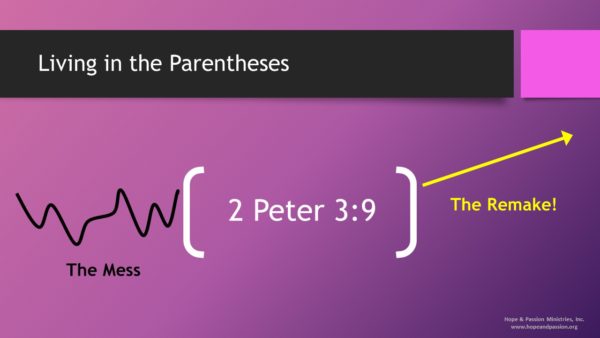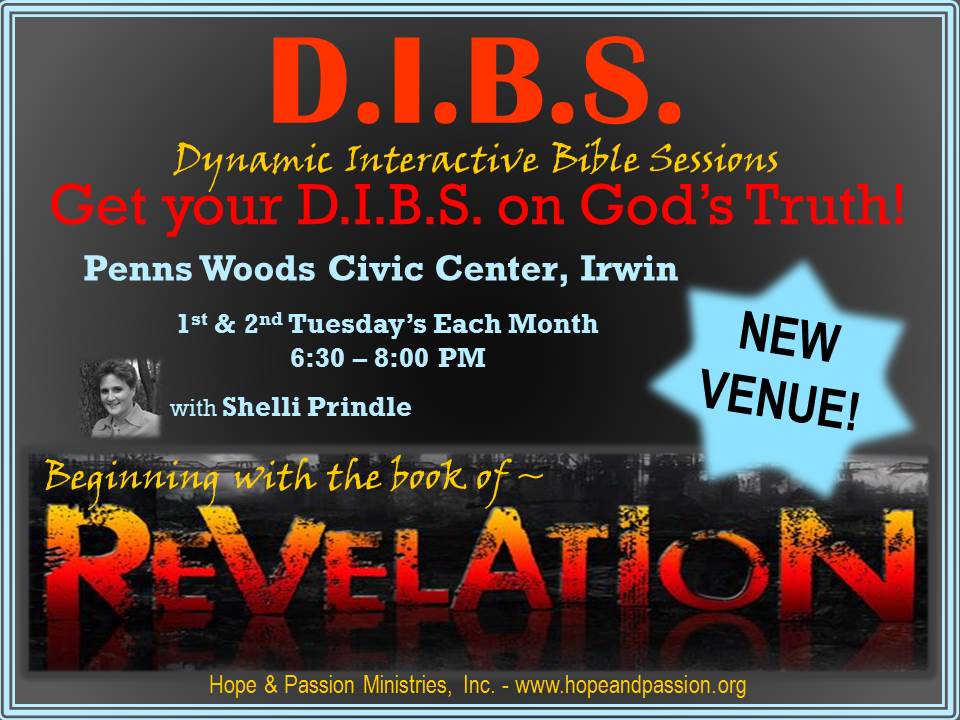Jesus Himself tells us of a very wealthy man who made sure that he had the best of everything in life. He wore the finest designer clothes and ate excellent foods. He got out to all the best restaurants, if you will. He had a huge house with a three-car garage. In fact, Jesus uses a word in the Greek that tells us that this rich man lived magnificently every day; he had it made! In regards to vacations, status, and material things, this man had everything of which the heart can dream.
Contrast the poor man of which Jesus tells us, who was degraded to the point of being laid at the front gate of the rich man, hoping for some crumbs of discarded food. Not only that, this destitute man was covered with sores. In fact, the wild dogs of the first century (dogs back then were not pets treated with human luxuries) would come and lick the poor man’s sores. Can you imagine the horror? This man lay crumpled at a gate hoping for food from a rich man’s garbage and covered with oozing sores all over his body that the neighborhood dogs came and licked at!
In our backwards world where thinking processes are inside-out, we might imagine that this poor man is rejected by God and lacks the kind of faith that makes life prosperous and worth living. We have it all wrong. Socioeconomic status and health status do not demonstrate in any way the position of a man’s soul in regard to God. The moment this poverty-stricken, unhealthy man died, we see how the tables turn and what the poor man’s relationship with God truly is.
You see, the penniless man could certainly never afford a car, or a taxi, or even a bus ride. But when he died, wow! Did he get the escort of his life! You talk about limousines! How about this? How about when the poor man’s heart ceased to beat, angels came and ushered him to Heaven! He rode with an angelic escort – past the earth’s atmosphere, past the demonic powers of the air, past the stars and moon – right to Heaven.
Immediately upon death, the view is clear. The poor man had a heart right with God. God loved him dearly. He was rejected, neglected, and mocked in this world, but this world was not worthy of him. Now the tables turn.
In contrast, the reality of the wealthy man’s spiritual problem comes to light the second he dies. Jesus tells us that he is immediately in torment. He is begging for relief. He is asking that Father Abraham (the father of our faith, who is with the poor man in Heaven) would please allow the poor man, Lazarus, to dip the end of his finger in water and come to cool his tongue. The wealthy man cries out that he is in constant anguish in Hell.
Now, I present to you the words of Father Abraham (who is speaking for God concerning the afterlife), “Child, remember that you in your lifetime received your good things, and Lazarus in like manner bad things; but now he is comforted here, and you are in anguish.” (Luke 16:25) Do you see what happens? For the godly, the worst of this life is the worst that we will ever face; this is our Hell, so to speak. For the ungodly, the best of this life is the best that they will ever have; this is their Heaven, so to speak. How devastating for the ungodly. This transient life is the greatest they will ever see and, after that, eternal torment. How wonderful beyond words for the godly. These temporary difficulties and pains in our heart will soon pass, and eternal, unhindered joy will be ours!
The most ironic part is yet to come. Abraham next tells the rich man that there is a chasm between Heaven and Hell, so that none can cross from one side to the other. (How important this is to know, for our decision for or against Christ can only be made while we breathe. At death, it is far too late.) Upon learning that Lazarus cannot cross from Heaven to bring any relief to those in Hell, the rich man says, “Then I beg you, father, to send him to my father’s house – for I have five brothers – so that he may warn them, lest they also come into this place of torment.” (Luke 16:27-28)
What a commendable request! The rich man, who ignored God and His offer of salvation throughout his carefree life, is now wanting to be – from the pit of Hell – an evangelist! If ever God would let a human come back from death to speak to the living, this would be the time! The rich man just wants Lazarus to be able to go back to the earth and warn his brothers not to end up in Hell. Maybe God would allow this? No. He does not. Even for the sake of post-death evangelism, God does not allow the dead to return to the living. And there is more to the story; God knows that a visit from a dead person would not help.
Hear this sobering truth. (I am going to insert the words “the Bible” for “Moses and the Prophets,” because at the time of Jesus saying these words, the New Testament was not written, and “Moses and the Prophets” was the Bible.) To the request for Lazarus to go from Heaven and return to earth to proclaim the truth to the rich man’s brothers, Abraham replies, “’They have [the Bible]; let them hear [it]. And he said, ‘No father Abraham, but if someone goes to them from the dead, they will repent.’ He said to him, ‘If they do not hear [the Bible], neither will they be convinced if someone should rise from the dead.’” (Luke 16:29-31)
Do you realize what God has declared? The revealed Word of God as found in Jesus Christ and His Word is ALL a person needs to be saved. A person who will not heed the Bible will not heed someone who resurrects from the dead! You say, “Really?” Think about it. Jesus rose from the dead in the first century, and very few people followed responded! If a person will not listen to the Bible, then a person does not want to listen to God; her heart is already hard.
Moreover, evangelists from Hell are completely ineffective. The rich man realized the truth of the Gospel TOO LATE. The very Gospel that he ignored and then rejected in this earthly life suddenly became the most important thing (as it should be for all of us). But there was no hope for him at that point, and there is no hope for him to share the truth with others at that point. At the gates of Hell, hope dies. Maybe that’s why 1 Peter 1:3 declares that when we are saved, we are “born again to a living hope.” When we are unsaved, hope dies at death.
Will you allow this account told by our Savior Himself to motivate you to do as much evangelizing as you can while you are still alive and people are still able to respond?
Will you treasure your Bible and not be ashamed to carry it and share it wherever you are?
Will you recognize that the poorest and the sickest among us may be the strongest in spiritual and eternal things?
Will you refuse to let blessings and riches be the focus of your life, but rather make Jesus and His Gospel the main thing?
Will you remember in everyday decisions that this life is temporary and the next life is forever?
– Shelli Prindle







